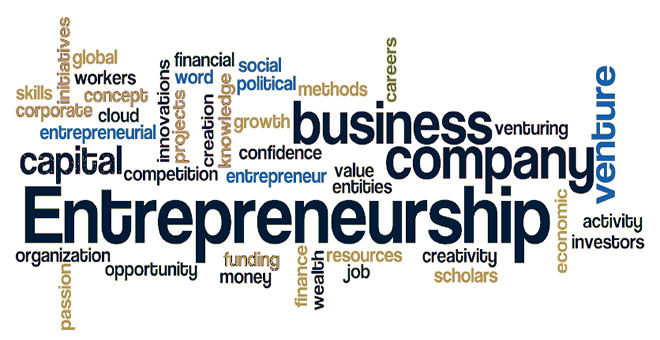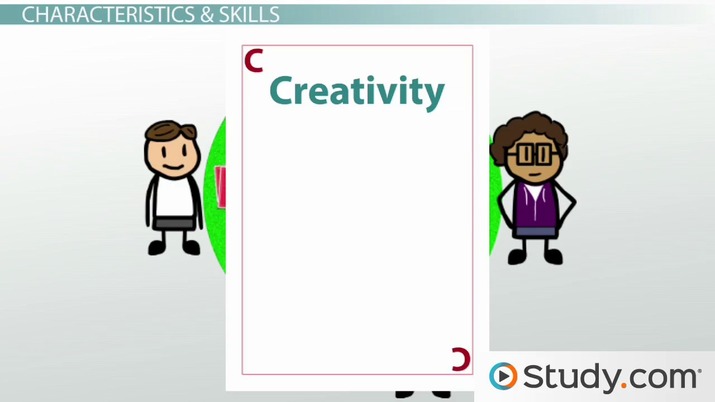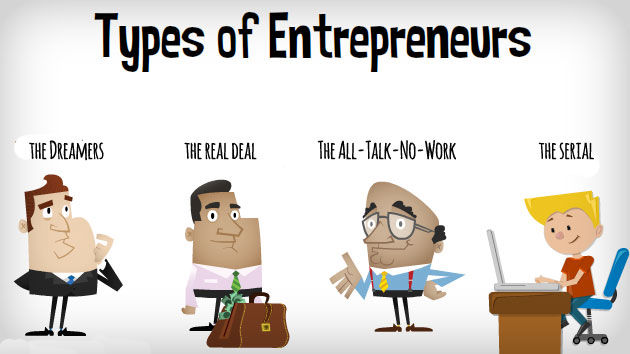
Entrepreneurship
Entrepreneurship
 An entrepreneur is someone who organizes, manages, and assumes the risks of a business or enterprise. An entrepreneur is an agent of change. Entrepreneurship is the process of discovering new ways of combining resources.
An entrepreneur is someone who organizes, manages, and assumes the risks of a business or enterprise. An entrepreneur is an agent of change. Entrepreneurship is the process of discovering new ways of combining resources.
When the market value generated by this new combination of resources is greater than the market value these resources can generate elsewhere individually or in some other combination, the entrepreneur makes a profit.
An entrepreneur who takes the resources necessary to produce a pair of jeans that can be sold for thirty dollars and instead turns them into a denim backpack that sells for fifty dollars will earn a profit by increasing the value those resources create.
This comparison is possible because in competitive resource markets, an entrepreneur’s costs of production are determined by the prices required to bid the necessary resources away from alternative uses.
Those prices will be equal to the value that the resources could create in their next-best alternate uses.
Because the price of purchasing resources measures this opportunity cost— the value of the forgone alternatives—the profit entrepreneurs make reflects the amount by which they have increased the value generated by the resources under their control.
Entrepreneurs
Entrepreneurs who make a loss, however, have reduced the value created by the resources under their control; that is, those resources could have produced more value elsewhere.
Losses mean that an entrepreneur has essentially turned a fifty-dollar denim backpack into a thirty-dollar pair of jeans.
This error in judgment is part of the entrepreneurial learning, or discovery, process vital to the efficient operation of markets.
The profit-and-loss system of capitalism helps to quickly sort through the many new resource combinations entrepreneurs discover.
A vibrant, growing economy depends on the efficiency of the process by which new ideas are quickly discovered, acted on, and labeled as successes or failures.
This is the positive side of business failure.
Successful Entrepreneurs
Successful entrepreneurs expand the size of the economic pie for everyone.
Bill Gates, who as an undergraduate at Harvard developed BASIC for the first microcomputer, went on to help found Microsoft in 1975.
During the 1980s, IBM contracted with Gates to provide the operating system for its computers, a system now known as MS-DOS.
Gates procured the software from another firm, essentially turning the thirty-dollar pair of jeans into a multibillion-dollar product.
Microsoft’s Office and Windows operating software now run on about 90 percent of the world’s computers. By making software that increases human productivity, Gates expanded our ability to generate output (and income), resulting in a higher standard of living for all.
The founder of Wal-Mart
Sam Walton, The founder of Wal-Mart, was another entrepreneur who touched millions of lives in a positive way.
His innovations in distribution warehouse centers and inventory control allowed Wal-Mart to grow, in less than thirty years, from a single store in Arkansas to the nation’s largest retail chain.
Shoppers benefit from the low prices and convenient locations that Walton’s Wal-Marts provide.
Along with other entrepreneurs such as Ted Turner (CNN), Henry Ford (Ford automobiles), Ray Kroc (McDonald’s franchising).
And Fred Smith (FedEx), Walton significantly improved the everyday life of billions of people all over the world.
The word “entrepreneur”
Originates from a thirteenth-century French verb, entreprendre, meaning “to do something” or “to undertake.”
In the early 1800s, economists Jean-Baptiste Say and John Stuart Mill further popularized the academic usage of the word “entrepreneur.”
Say stressed the role of the entrepreneur in creating value by moving resources out of less productive areas and into more productive ones.
Mill used the term “entrepreneur” in his popular 1848 book, Principles of Political Economy, to refer to a person who assumes both the risk and the management of a business.
Economists
Two notable twentieth-century economists, Joseph Schumpeter and Israel Kirzner, further refined the academic understanding of entrepreneurship.
Schumpeter stressed the role of the entrepreneur as an innovator who implements change in an economy.
In the Schumpeterian view, the entrepreneur is a disruptive force in an economy.
Schumpeter emphasized the beneficial process of creative destruction, in which the introduction of new products results in the obsolescence or failure of others.
In contrast to Schumpeter’s view, Kirzner focused on entrepreneurship as a process of discovery.
Kirzner’s entrepreneur is a person who discovers previously unnoticed profit opportunities.
The entrepreneur’s discovery initiates a process in which these newly discovered profit opportunities are then acted on in the marketplace until market competition eliminates the profit opportunity.
Unlike Schumpeter’s disruptive force, Kirzner’s entrepreneur is an equilibrating force.
Economists in the modern austrian school of economics have further refined and developed the ideas of Schumpeter and Kirzner.
Promoting Entrepreneurship
As the centerpiece of economic development policy and instead shifted their focus to promoting entrepreneurship.
This same period witnessed a dramatic increase in empirical research on entrepreneurship.
Others explore the impact of taxes on entrepreneurial activity.
This literature is still hampered by the lack of a clear measure of entrepreneurial activity at the U.S. state level.
Scholars generally measure entrepreneurship by using numbers of self-employed people;
Entrepreneurial Activity
Some empirical studies have attempted to determine the contribution of entrepreneurial activity to overall economic growth.
Infusions of venture capital funding, economists find, do not necessarily foster entrepreneurship.
While funding can increase the odds of new business survival, it does not create new ideas. Funding follows ideas, not vice versa.
what constitutes entrepreneurship
One of the largest remaining disagreements in the applied academic literature concerns what constitutes entrepreneurship.
If not, how are these different activities classified, and where do we draw the line? This uncertainty has led to the terms “lifestyle” entrepreneur and “gazelle” (or “high growth”) entrepreneur.
Lifestyle entrepreneurs open their own businesses for the benefits associated with being their own bosses and setting their own schedules.
Gazelle entrepreneurs often move from one start-up business to another, with a well-defined growth plan and exit strategy.
While this distinction seems conceptually obvious, empirically separating these two groups is difficult when we cannot observe individual motives.
Researchers on rural entrepreneurship have recently shown that the Internet can make it easier for rural entrepreneurs to reach a larger market.
Because, as Adam Smith pointed out, specialization is limited by the extent of the market, rural entrepreneurs can specialize more successfully when they can sell to a large number of online customers.
My own recent research, along with that of other economists, has found that the public policy that best fosters entrepreneurship is economic freedom.
Our research focuses on the public choice reasons why these government programs are likely to fail, and on how improved “rules of the game” (lower and less complex taxes and regulations, more secure property rights, an unbiased judicial system, etc.) promote entrepreneurial activity.
This relationship holds whether the countries studied are economies moving out of socialism or economies of OECD countries.
Figure 1 shows the strength of this relationship among OECD countries.
The dashed line in the figure shows the positive relationship between economic freedom and entrepreneurial activity.
One reason economic freedom produces economic growth is that economic freedom fosters entrepreneurial activity.







Responses